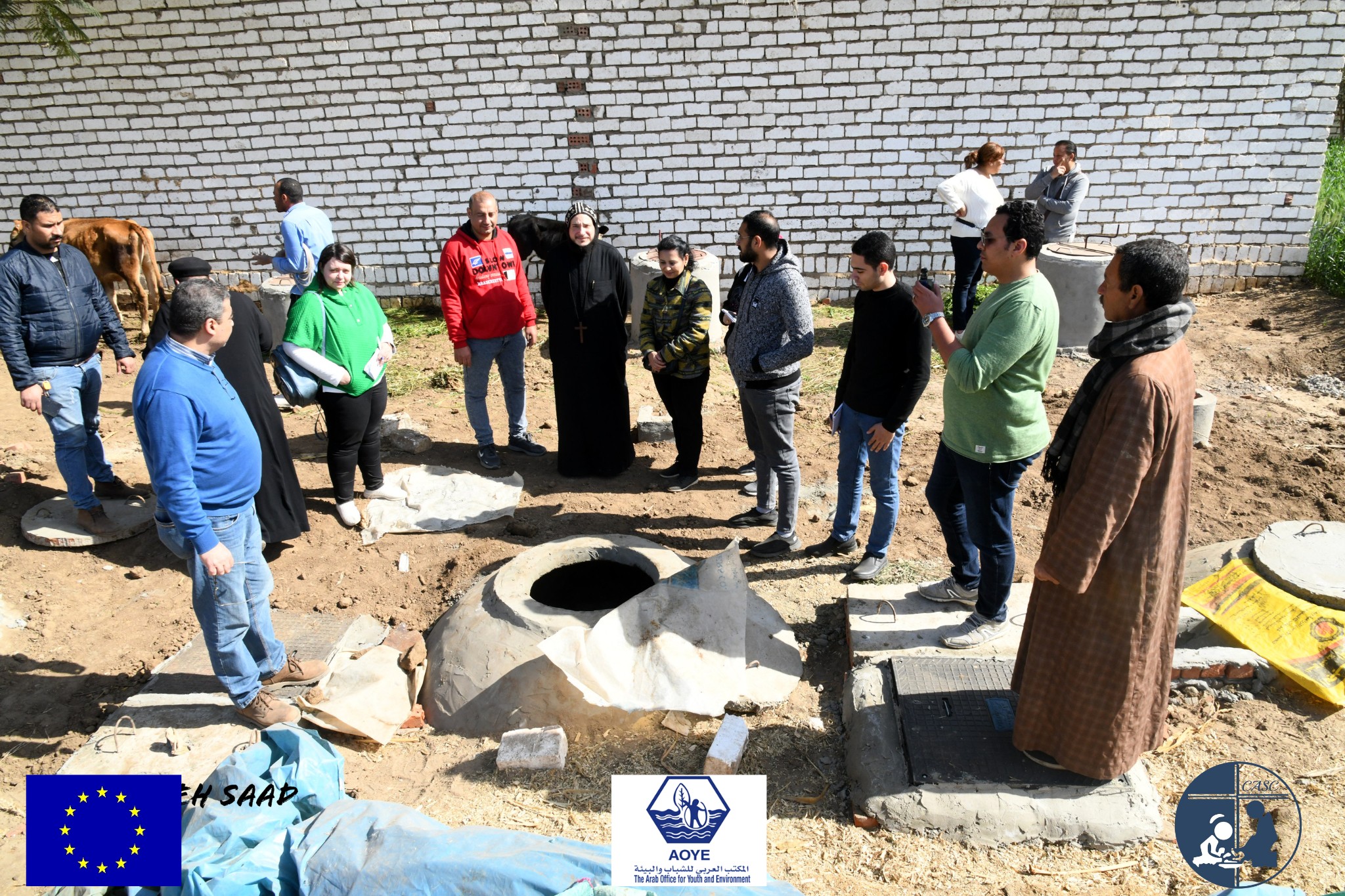Resilient Productive Communities Project (update)
Funded by the European Union, the “Resilient Productive Communities Project” represents an ongoing partnership aimed at improving the quality of life. The project is focused on enhancing and developing the environmental conditions within three targeted communities while integrating sustainability concepts and practices.
The project is implemented in collaboration between the Coptic Association for Social Care (CASC) and the Arab Office for Youth and Environment (AOYE) as key partners, alongside local community partners, including the Coptic Ikhlas Development Association in Beni Suef and the Misr Al-Irada Association in Cairo.
Since its inception in early 2020, the project has provided practical solutions to targeted communities in Cairo and Beni Suef, specifically in the Al-Zakat Foundation area in Al-Marg, Cairo and the villages of Ezzbet Al-Fant and Galila in Beni Suef. It has also focused on capacity building, benefiting over 3,000 families through direct and indirect services.
Key Achievements
Throughout the project’s implementation, a participatory and coordinated approach was followed, engaging governmental bodies, local authorities, and community leaders at all stages of planning and execution. The project formed three community committees to ensure community participation and address challenges, and government committees were also involved for coordination.
Raising Awareness and Building Capacity
The project’s first step was to focus on raising awareness and building the capacities of the target communities, helping them understand climate change and how to mitigate its impacts. More than 2097 participants have been directly engaged through awareness sessions, workshops, and environmental camps.
The project also provided training for community committees on how to propose and prioritize community initiatives. As a result, three community-led initiatives—one in each target area—are set to be implemented in March and April 2024.
Sustainable Practices and Applications
The project has introduced sustainable activities in the targeted communities to improve the environmental conditions and promote sustainable development aligning with Egypt’s 2030 Vision. For example, it distributed 9,000 energy-saving LED bulbs, benefiting 7,121 families and installed 540 LED streetlights, illuminating 34 main streets and 80 side streets, benefiting nearly 18,913 residents. An additional 260 streetlights will be installed in March and April 2024.
The project is also preparing to install 12 solar energy stations, six of which will be placed at key community facilities such as places of worship, and six solar-powered irrigation machines will be implemented in Beni Suef.
In addition, 69 biogas units have been installed in Beni Suef, with plans to complete 100 units by April 2024, benefiting around 500 people. The project is also transitioning 30 acres of farmland to modern, water-saving irrigation systems.
Also, to enhance air quality and increase green spaces, 1,030 fruit trees have been planted along roads and distributed to residents for planting in the community.
Green Jobs for Youth
A major priority of the project is empowering youth by introducing them to green jobs and entrepreneurship. Sixty young men and women from the target areas have received training on green entrepreneurship, leading to the selection of 60 green business projects that will be supported technically and financially. These projects include rooftop gardening, waste management, recycling, and the production of alternatives to plastic bags.
Added Value of the Project
The “Resilient Productive Communities Project” has successfully built partnerships with key stakeholders to further Egypt’s Sustainable Development Strategy: Vision 2030. The project has collaborated with government initiatives such as “Decent Life – Hayah Kareema” and “Takaful and Karama” to maximize the impact on beneficiaries.
By partnering with the European Union and local stakeholders, the project has delivered developmental services and innovative solutions, contributing to community resilience against climate change. It has also fostered sustainable urban and rural models, with a focus on empowering youth, women and people with special needs to embrace green jobs and projects, aligning with the country’s development policies and goals for 2030.

